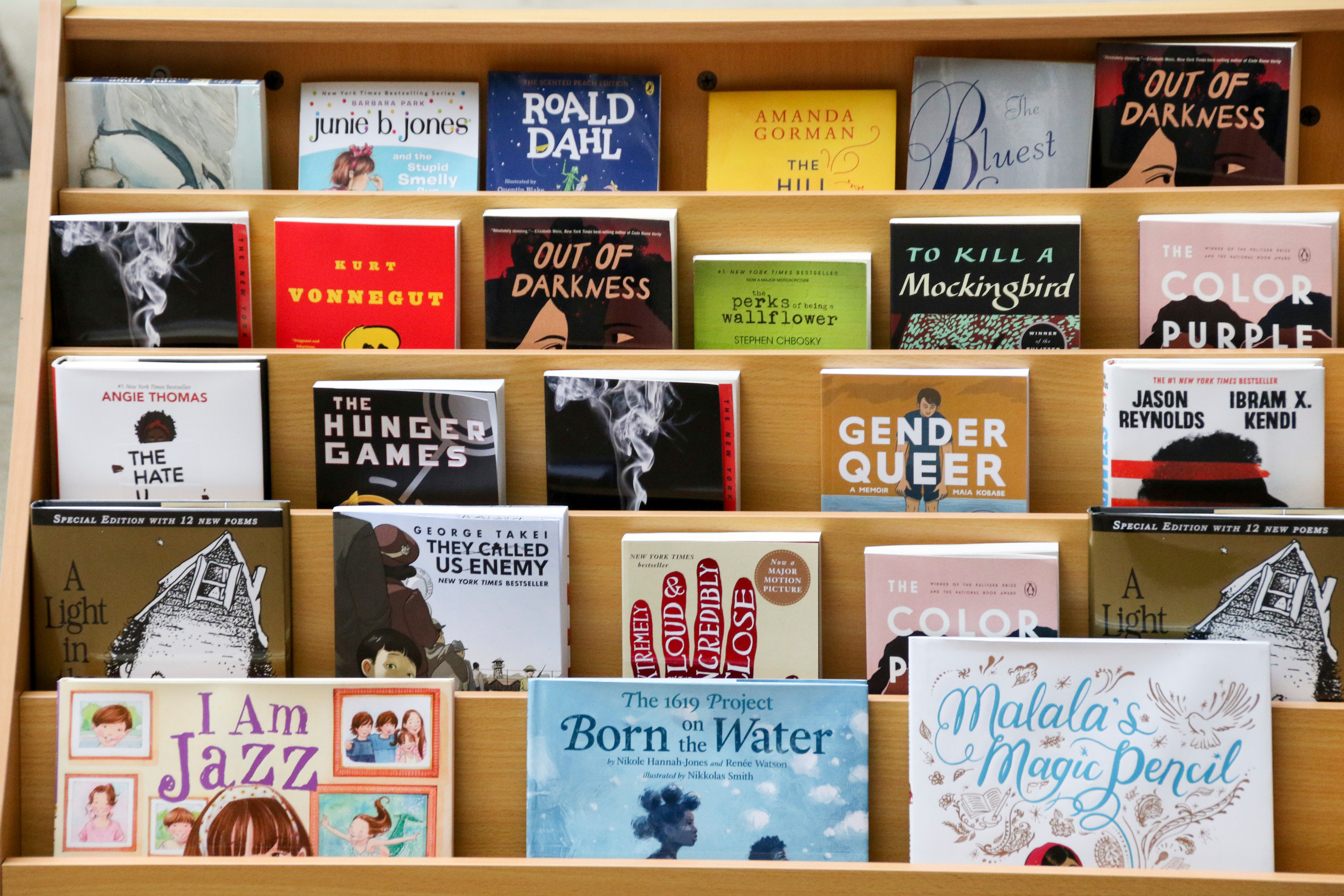Citing 1st Amendment rights of students, ABA House passes resolution against book bans

Books that have been subject to bans were on display in July at a Banned Bookmobile event in Chicago. (Photo by Alexandra Buxbaum/Sipa USA via AP Images)
The House of Delegates opposed attempts to ban books in public education, public libraries or public school libraries on Monday at the ABA Annual Meeting in Denver.
Resolution 515, sponsored by the Section of Civil Rights and Social Justice, targets legislation or policies that violate the First Amendment rights of students and educators. It passed unanimously.
The first half of 2022-23 school year saw a 28% increase in school book bans compared with the prior six months, with nearly a third occurring in Florida, Missouri and Utah, according to PEN America. Stories written about people of color and LGBTQ+ individuals are overwhelmingly targeted, according to the writers’ organization that focuses on free speech and free press issues.
According to the American Library Association, 2,571 books maintained by school or community libraries were temporarily or permanently removed in 2022, a 38% increase from 2021.
Delegates underscored that book bans deprive diverse students access to books that represent them, prevent teaching of complete and historically accurate information, and prohibit materials needed for the health and safety of at-risk children.
“The First Amendment is first because it is the cardinal constitutional value: woven into the fabric of our founding charter, embedded in our national character. … It is the right protective of all other rights, the prerequisite for a functioning democracy,” said Robert Weiner, a delegate representing Washington, D.C., as he introduced the resolution.
He added that the resolution preserves the right of parents to choose what their own children read, but it denies them the right to determine what other children can read. Additionally, the resolution explicitly does not limit a librarian’s or teacher’s abilities to choose how to best use their libraries’ resources.
Follow along with the ABA Journal’s coverage of the 2023 ABA Annual Meeting here.
Juan Thomas, a delegate from Illinois who represents the Illinois State Bar Association, spoke in support of the resolution. “I ask what is more uncomfortable—being brutally killed for being gay or having to read When We Rise,” he said. “I believe our children are resilient when they learn the truth. I trust they will do and become what we all hope for—critical thinkers.”
Around the country, book bans continue to make headlines. In late July, U.S. District Judge Timothy Brooks in Arkansas issued a temporary injunction blocking two provisions of Act 372, a state law making it a misdemeanor for librarians and booksellers to provide minors with materials deemed “harmful.”
Meanwhile, in June, Illinois became the first state to outlaw book bans.
The Standing Committee on Public Education, the Coalition on Racial and Ethnic Justice, the Commission on Hispanic Legal Rights and Responsibilities, the Commission on Sexual Orientation and Gender Identity and the Council for Diversity in the Educational Pipeline co-sponsored the resolution.
See also:
ABAJournal.com: “Illinois uses grant money to encourage libraries not to ban books; law touted as first of its kind”



